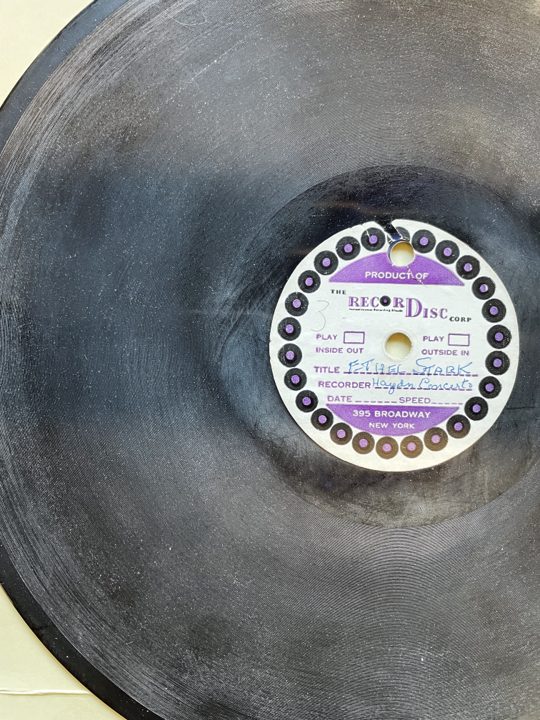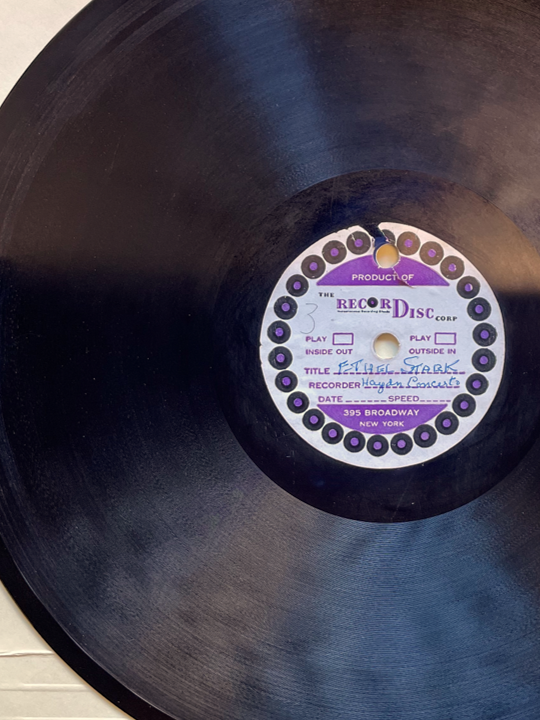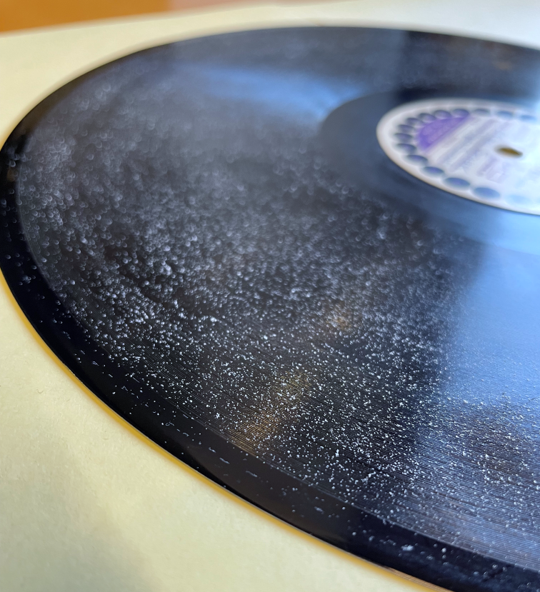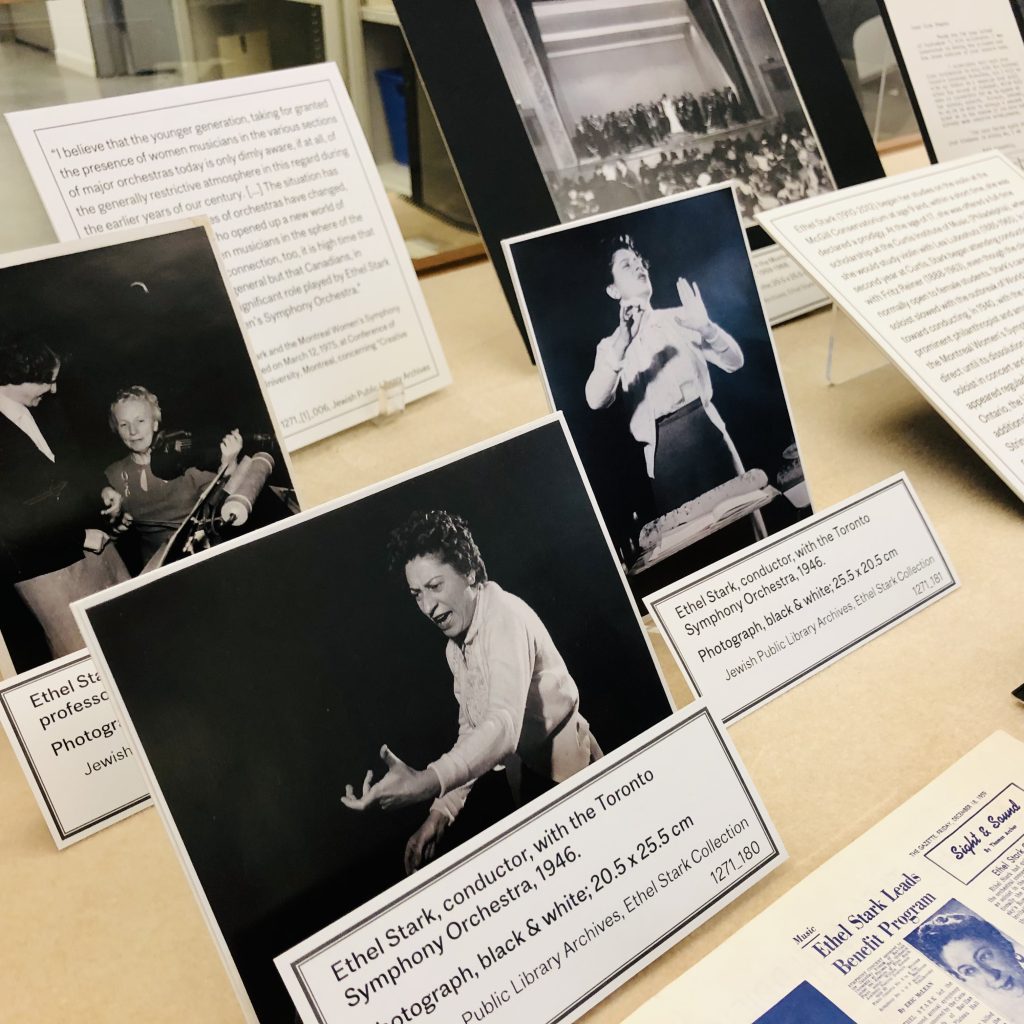
In 2023, the Marvin Duchow Music Library began a collaboration with the Jewish Public Library Archives around the preservation of lacquer discs in one of their archival collections. Lacquer discs deteriorate over time, and without proper preservation interventions, the information captured therein could be forever lost. In the process of digitizing the discs, the sounds of a groundbreaking period in Montreal’s musical history emerged. These recordings, taken from their near-obsolete analog carriers, are now being carried forward in time as digital surrogates so the historical recordings can remain accessible for future generations.
The discs come from a remarkable archive, the Ethel Stark Collection, which documents the life and career of a pioneering violinist and conductor who forged new paths for women in music. Born and raised in Montreal, Ethel Stark (1910-2012) studied violin at the McGill Conservatorium and became the first Canadian to win a fellowship to the Curtis Institute in Philadelphia. In 1940, she formed the Montreal Women’s Symphony Orchestra (MWSO), the first all-women symphony orchestra in North America. Stark built the orchestra from the ground up, recruiting and teaching amateur players, obtaining instruments, finding rehearsal space, and directing the orchestra. The MWSO gave their debut concert in July 1940; seven years later, they became the first Canadian orchestra to perform at Carnegie Hall. Over the next two decades, Ethel Stark and the MWSO gave many concerts, some of which were broadcast live on the radio and recorded on transcription discs. These discs contain some of the few surviving audio records of their performances.
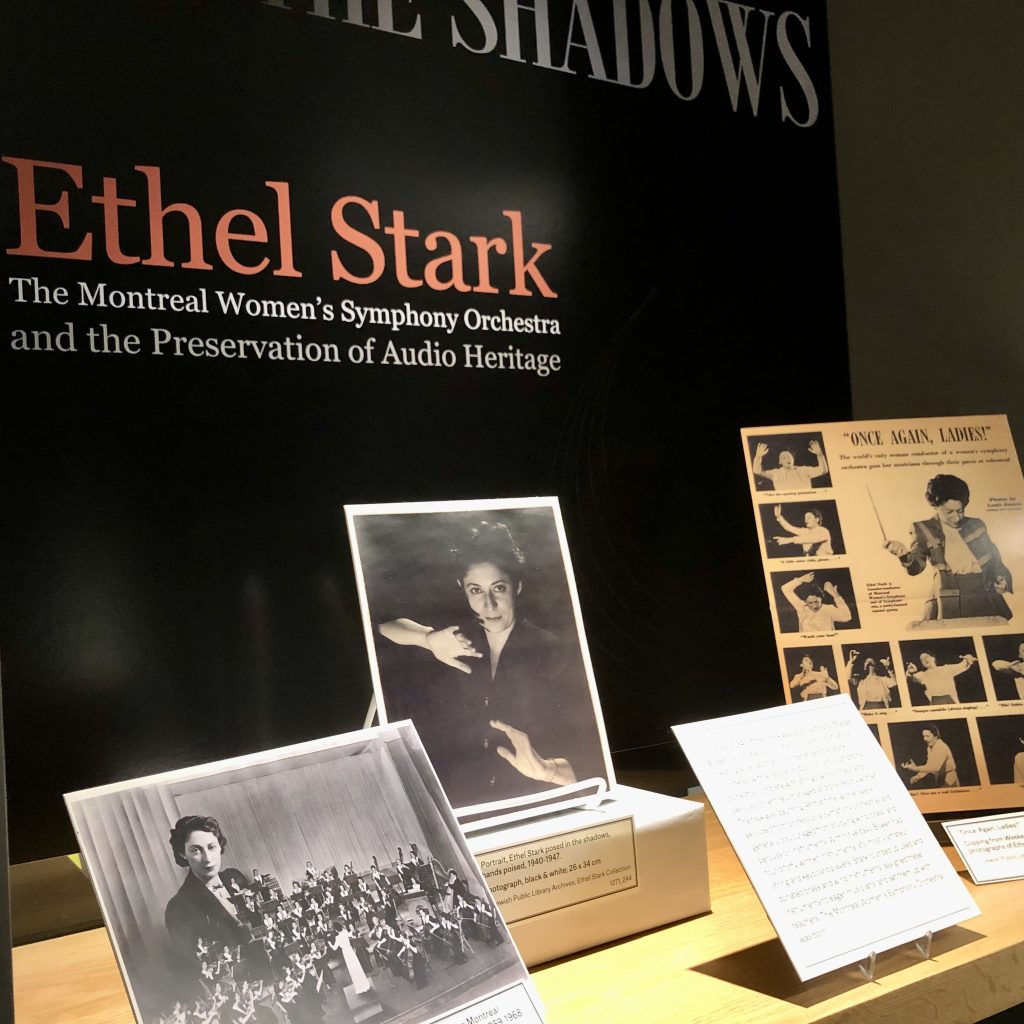
From the Shadows: Ethel Stark, the Montreal Women’s Symphony Orchestra, and the Preservation of Audio Heritage tells two interrelated stories that remind us of music’s ephemerality as well as its incredible endurance. First, the story of how Ethel Stark brought Montreal women musicians out from the wings and onto the concert stage by providing them an opportunity to make music. Second, the story of how libraries and archives collaborate to preserve artistic legacies and human endeavours by unearthing and safeguarding their physical and audio traces.
This exhibition features materials from the Ethel Stark Collection at the Jewish Public Library Archives, including press clippings, photographs, concert programs, and audio clips from the digitized lacquer discs which can be heard on-site at the Music Library, in addition to documents from the Marvin Duchow Music Library’s collections.
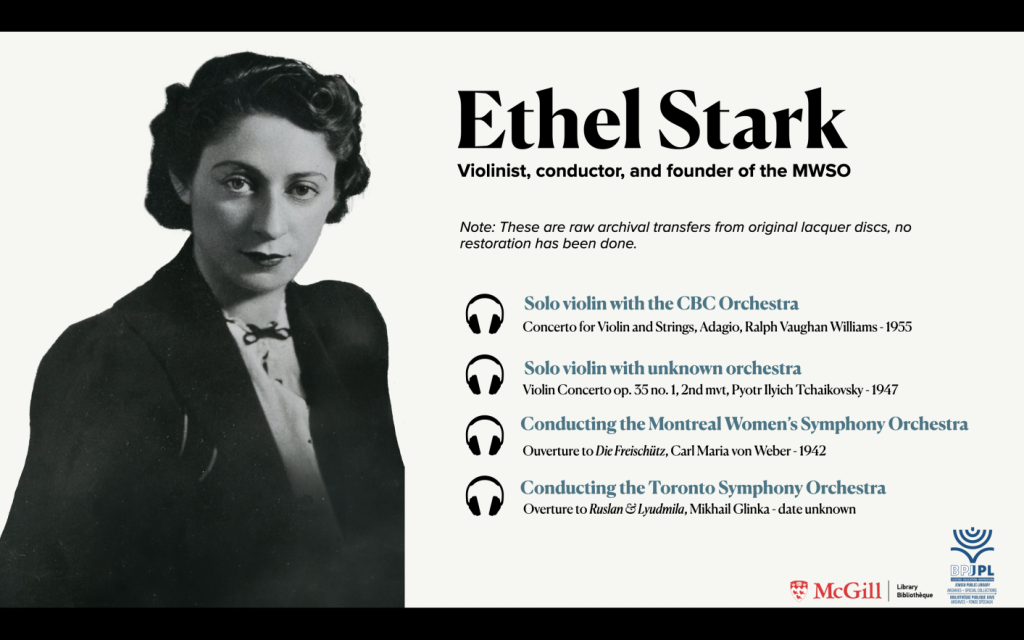
Lacquer discs: a race against time
Starting in the 1930s until roughly the 1950s, lacquer discs, also referred to as transcription discs or acetate discs (though the latter is a misnomer) were used widely for cutting masters in recording studios, in documenting radio broadcasts and creating instantaneous home recordings.
The discs consist of a substrate typically made of aluminum (occasionally glass or cardboard) with a nitrocellulose lacquer coating. Over time, the castor oil in the lacquer begins to leach out and a white powdery substance (palmitic acid) surfaces on the disc. Once this occurs, playback becomes increasingly problematic and the quality of the recording can be compromised as the disc has begun to show signs of deterioration. Proper cleaning and preservation of the recording is essential to prevent further damage and digitization at this late stage, although not without risks, is thankfully still possible. In time, the lacquer can further deteriorate and eventually delaminate, making the disc unplayable and its contents lost to history.
Lacquer discs are commonly found in sound recording archives, and their preservation is at a crucial moment in time – worldwide efforts are made to digitize recordings found on these analog carriers to ensure that the sounds captured therein remain accessible for future generations.
The Ethel Stark Collection contains a total of 44 lacquer discs showcasing Ethel Stark’s work as a soloist as well as a conductor with the Montreal Women’s Symphony Orchestra, the CBC Orchestra and the Toronto Symphony Orchestra. The recordings also feature an interview with Stark on Radio-Canada, and miscellaneous home and broadcast recordings.
In keeping with archival best practices, each record was inspected, cleaned either manually or by using a record cleaning machine. The discs were then digitized using a Rek-O-Kut turntable, Stanton 500 cartridge, various elliptical Rek-O-Kut archival styli, KAB EQS MK12 remastering phono preamp, and a Focusrite Scarlett 2i2 interface.
The resulting digital files are raw archival masters made for preservation purposes, without additional treatment (digital restoration, mixing, mastering). Artifacts are therefore present from the discs: pops, crackles, hisses and hums are a normal part of the carriers and the digitization process. And just like many archival record collections, they present a wide range of sonic quality (sometimes originating from the initial recording, sometimes due to deterioration of the physical materials), but all thankfully carried forward in digital form.
From the Shadows: Ethel Stark, the Montreal Women’s Symphony Orchestra, and the Preservation of Audio Heritage runs until July 31, 2024, and is accessible during the Music Library’s opening hours.

